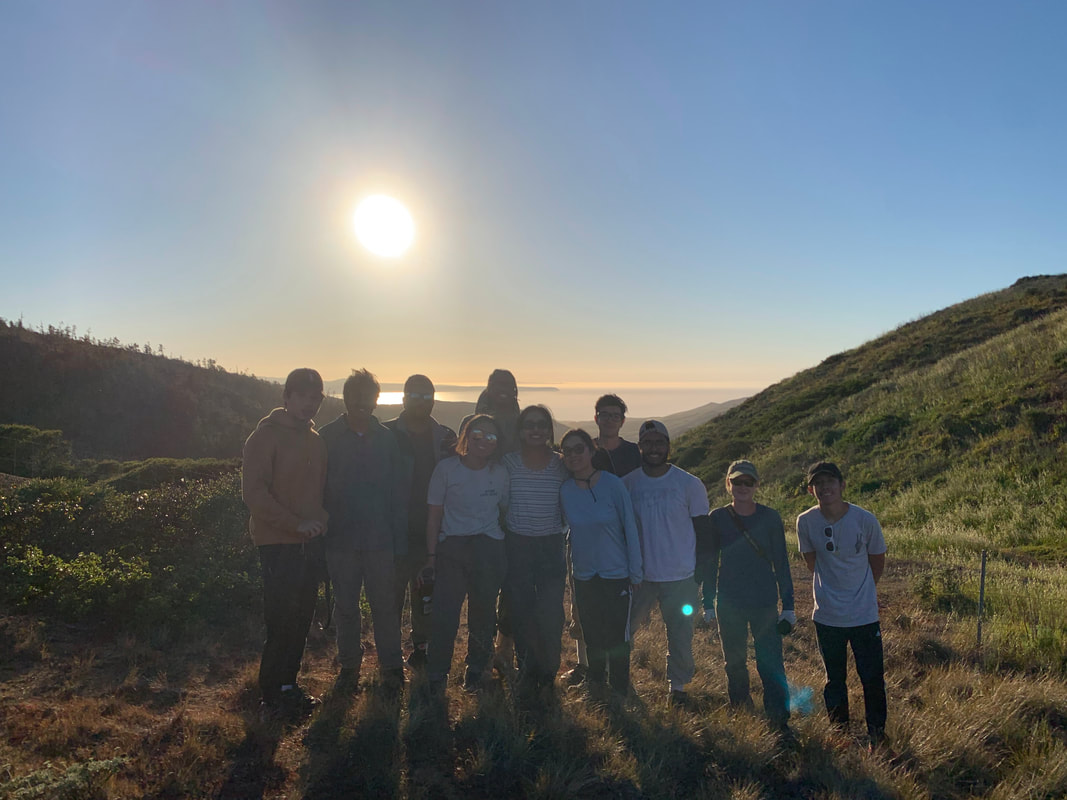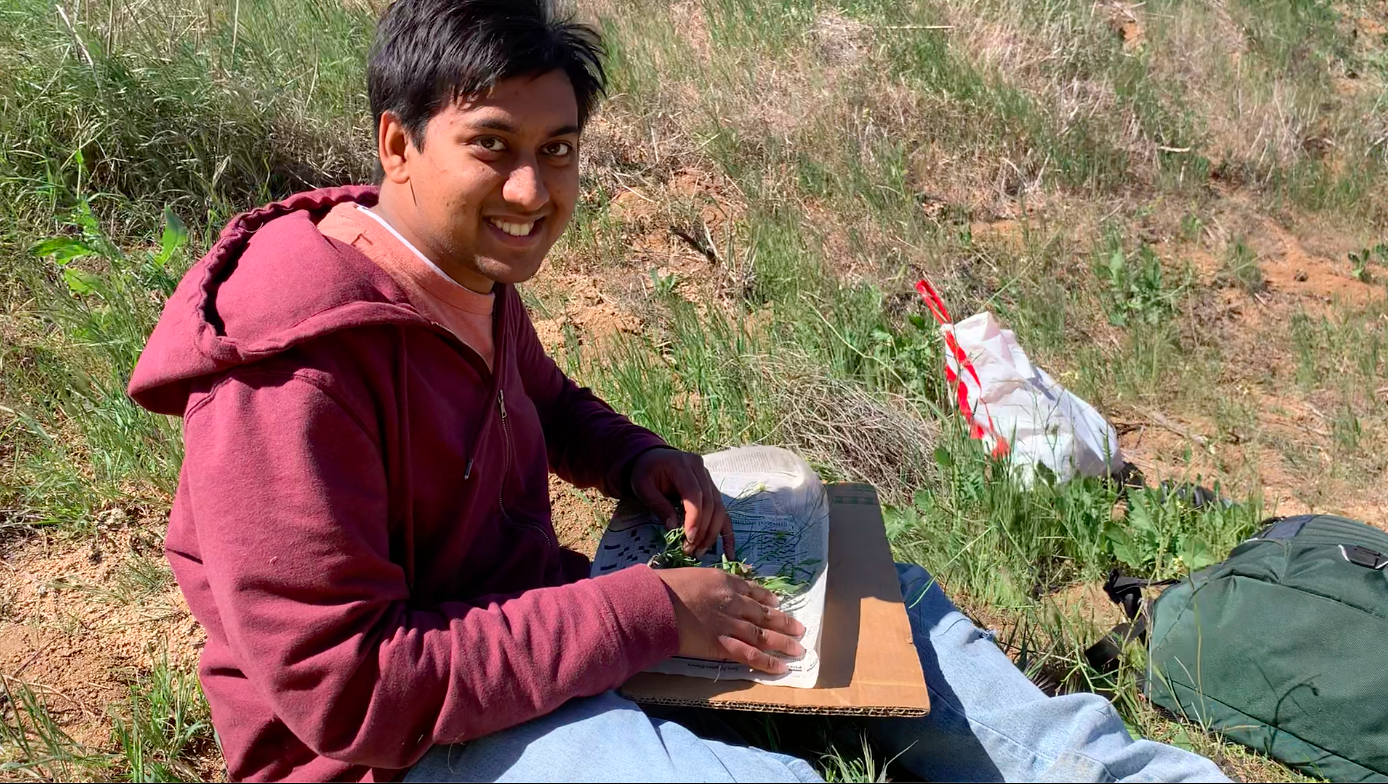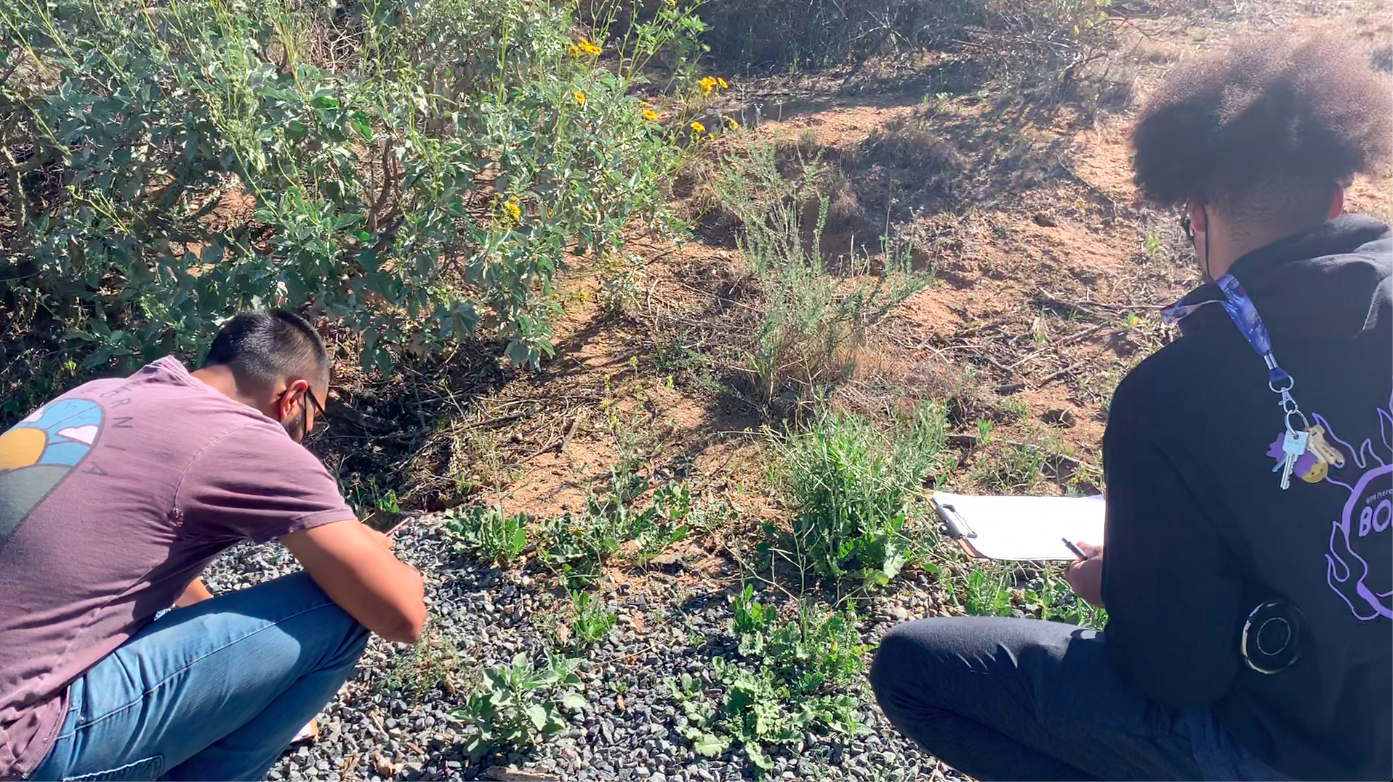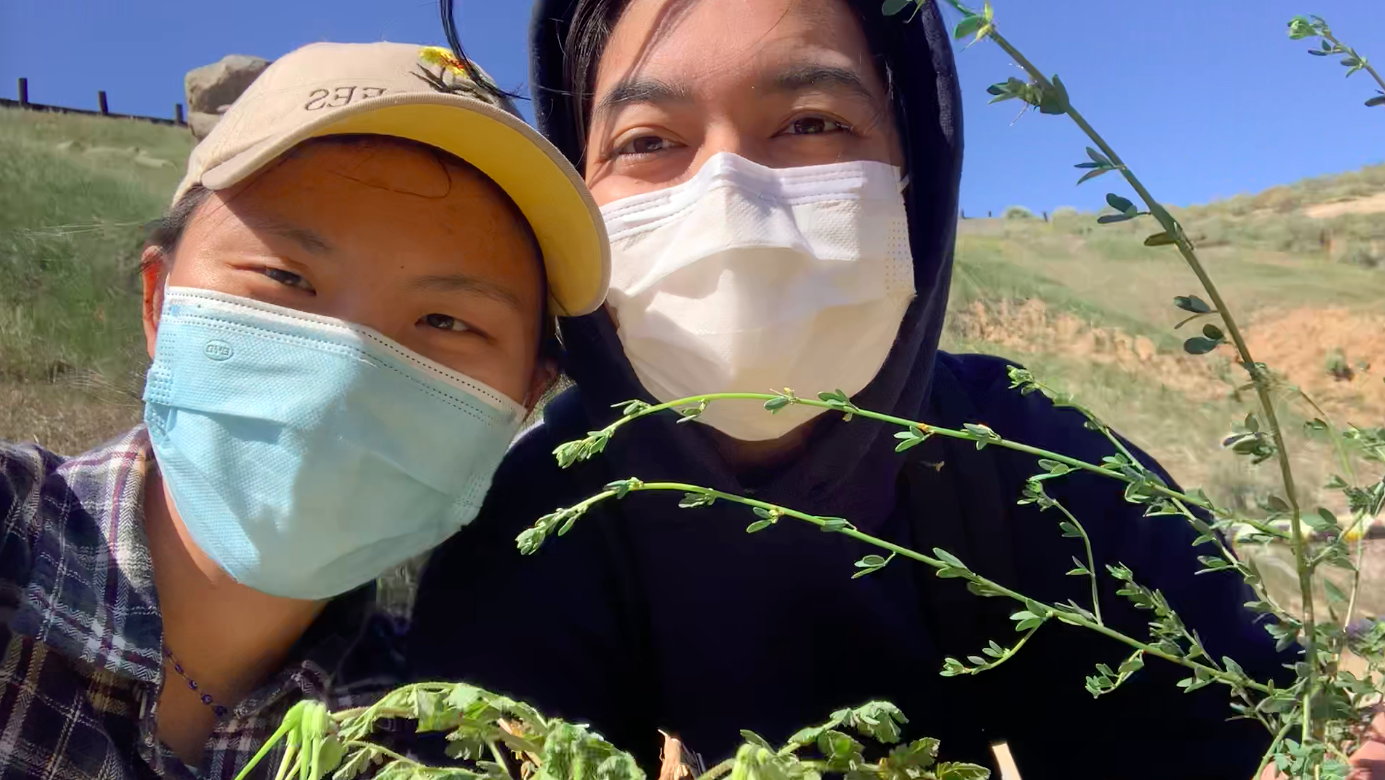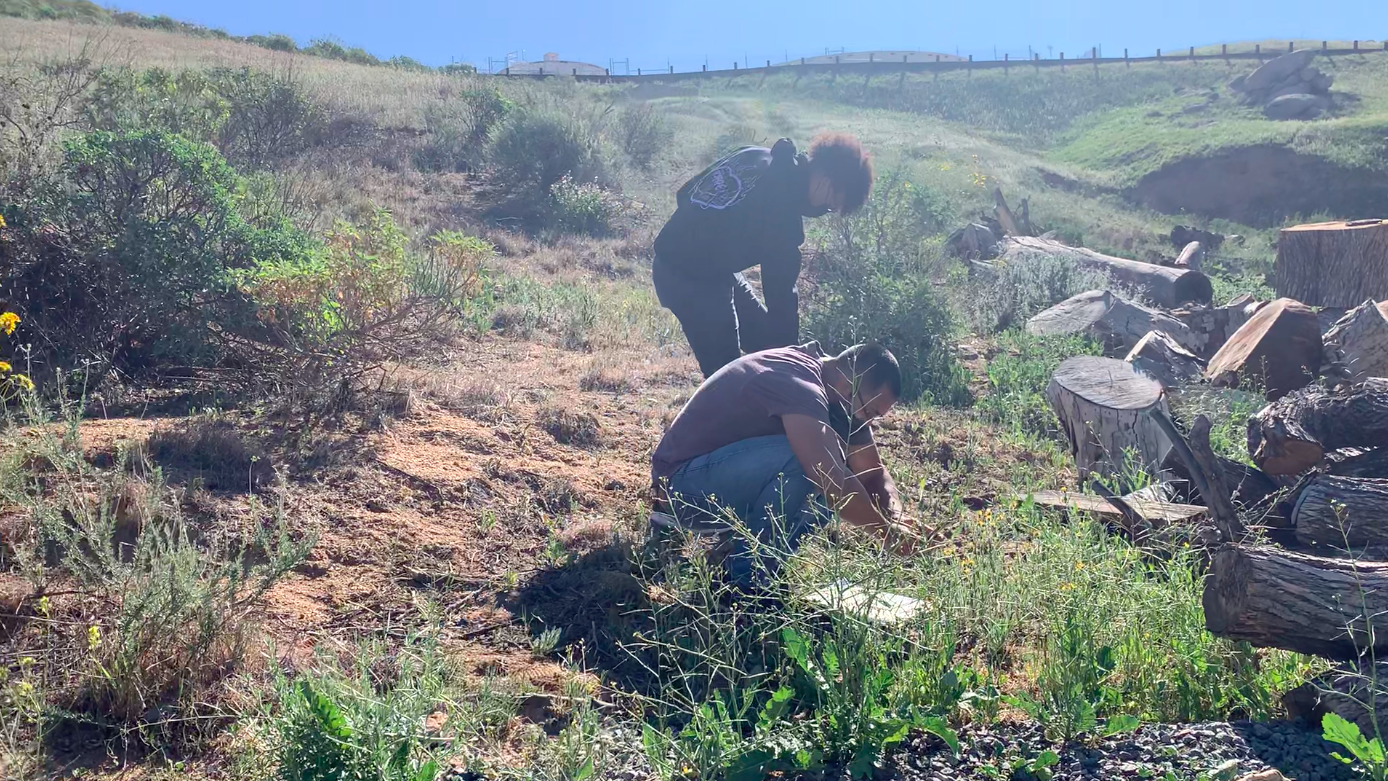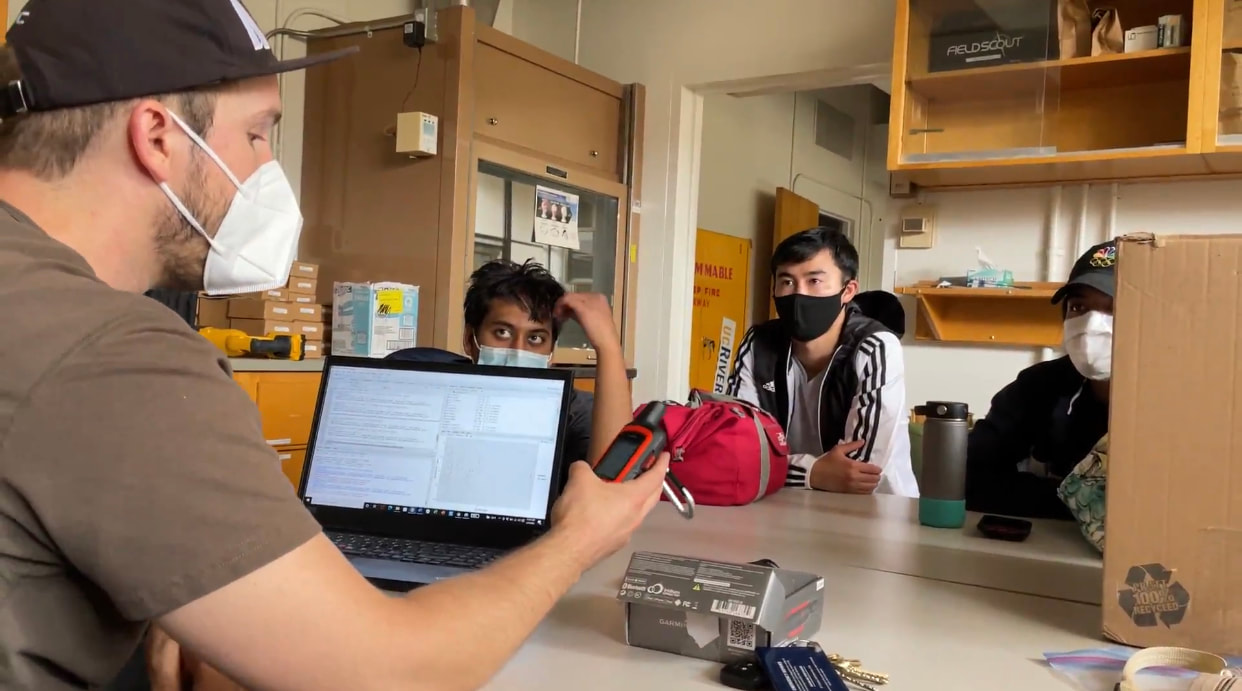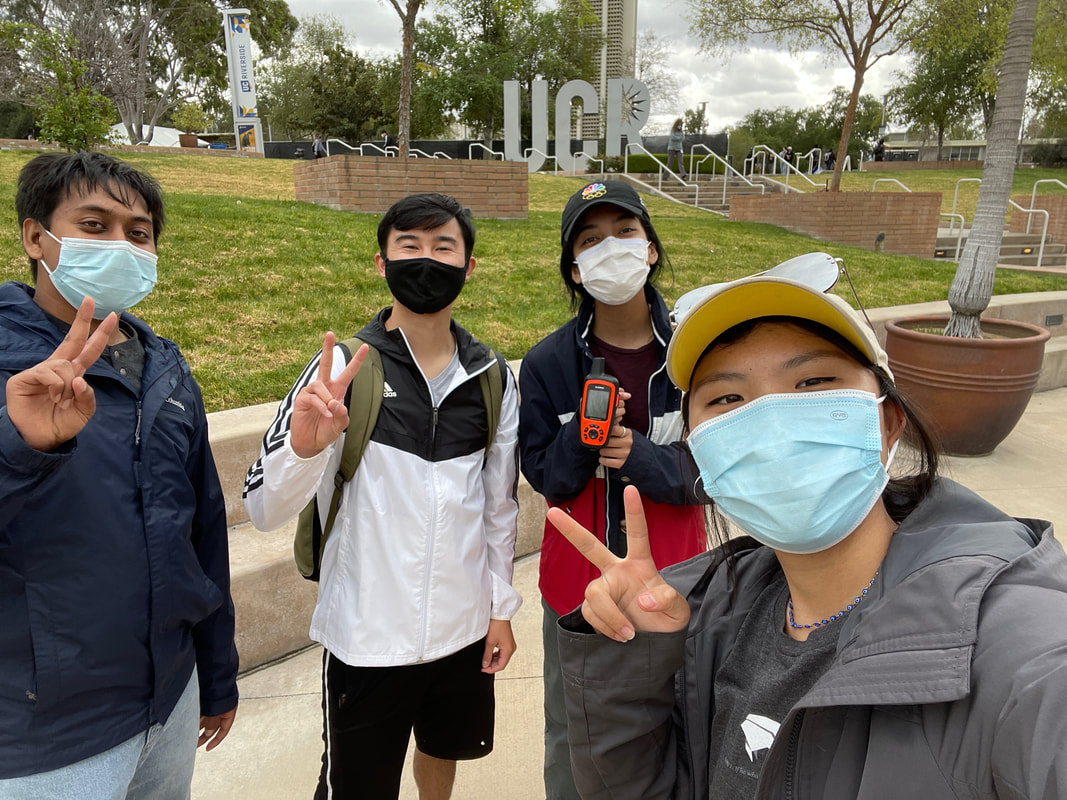|
Field experiences are known to improve inclusion in ecology by fostering a sense of scientific ownership and belonging in science. However, students may lack access to course-based undergraduate research experiences. SEEDS at the University of California, Riverside has worked to bridge this gap by creating undergraduate-led and organized research experiences for our undergraduate population to improve diversity in the ecological profession.
In early 2022, three student leaders trained seven undergraduate peers in research methods and provided a fully-funded field research opportunity with the goal of engaging students with little exposure to ecology. This project and research-focused field trip had three objectives informed by key opportunities for undergraduate education and important research priorities: (1) to train undergraduate students in ecological and conservation methods by providing a field research opportunity, (2) to contribute to the scientific understanding of passive vegetation recovery after the removal of invasive herbivores, and (3) to contribute to ongoing botanical documentation on the island by collecting herbarium specimens (pressed and preserved plants). During Spring Break 2022, 10 students from SEEDS-UCR went on a 3 day research expedition to Santa Cruz Island. The island offers unparalleled opportunities to learn about ecology as it is rich in biodiversity with numerous species found only on the island, and showcases multiple marine and terrestrial ecosystems from tidepools to mountains. From a research perspective, Santa Cruz Island is an excellent case study, serving as a natural laboratory to understand the recovery of native ecosystems. In the past, sheep and other invasive grazers significantly destroyed the native shrubland vegetation of the island, causing a conversion to grassland and a reduction in biodiversity. In 2006, all invasive herbivores were removed and the island has been allowed to recover passively with little intervention. Vegetation was first assessed in 1980 before herbivore removal and later resampled in 2012. During this trip, we resampled the island in 2022, 16 years after the complete removal of invasive herbivores, to investigate long-term passive vegetation recovery. We recorded 960 observations at 16 different locations, while also collecting plant specimens of 20 different species for the UCR Herbarium. This project will provide critical insights into how ecosystems can recover, and how long this process may take. We worked with professors, staff, and graduate students at UC Riverside, UC Santa Cruz, staff at the UC Santa Barbara Santa Cruz Island Natural Reserve, Cal Poly San Luis Obispo, the UC Riverside Herbarium, and the UC Riverside Center for Conservation Biology to plan and conduct this project. This opportunity was fully funded through grants from the Ecological Society of America National SEEDS program, the California Native Plant Society, and the UCR Center for Conservation Biology. We would like to thank these organizations and individuals for making this opportunity possible.
0 Comments
We practiced pressing plants on our own on BIO 5C Hill. It was a beautiful day with many plants in flower!
Students were taught how to plot points, features and tools within the Garmin unit, emergency communication, and how to navigate using the Garmin. [Post-Trip Reflection]: This workshop proved very valuable for the students when they got to the field. Many unforeseen circumstances regarding the field site occurred the day-of, so having the Garmin and knowledge of how to use it was extremely useful throughout the day.
|
Co-leaders2021-2022 Archives
August 2022
|
